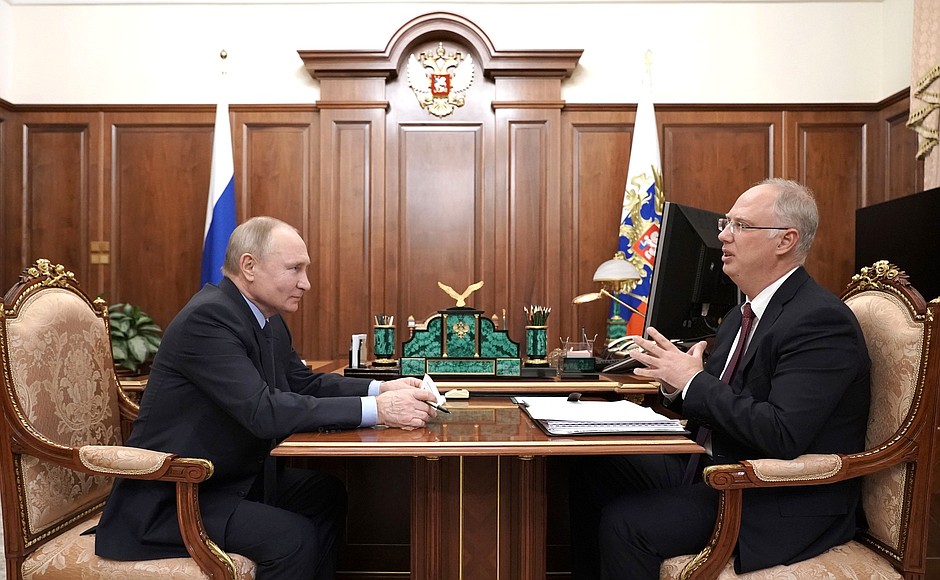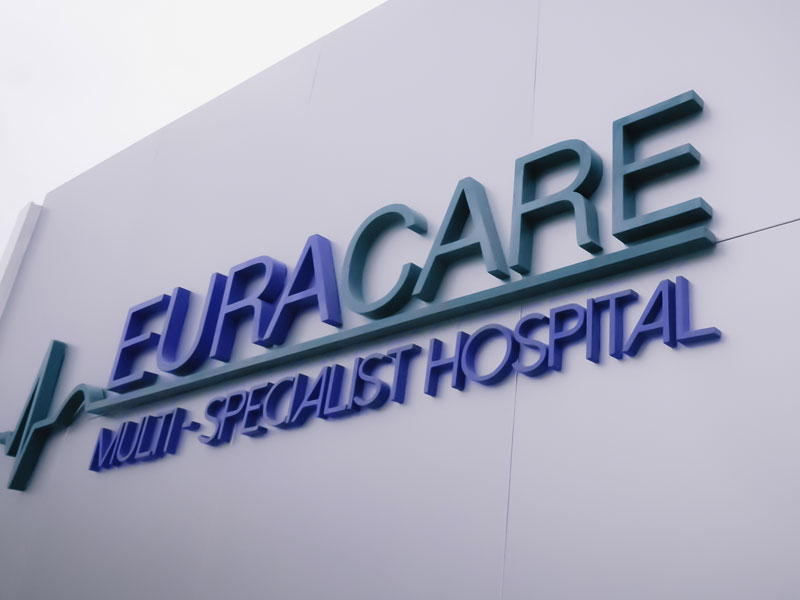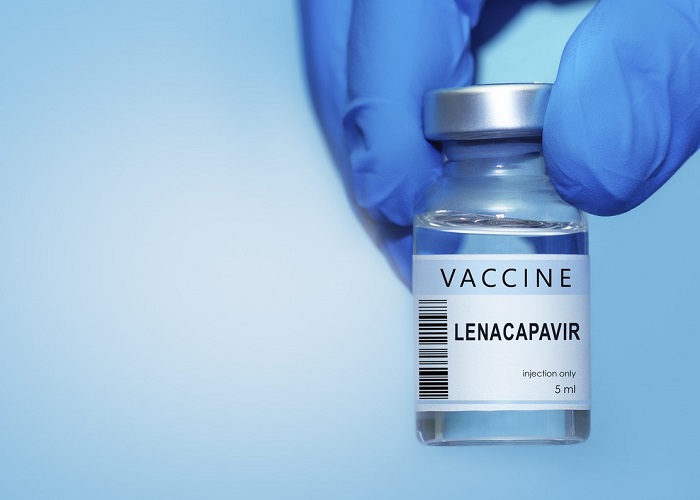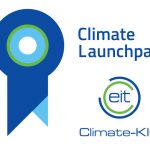Health
Why Russia’s Vaccine Diplomacy Failed Africa

By Kester Kenn Klomegah
In these difficult and crucial times, the strategic partnership with Africa has become a priority of Russia’s foreign policy, declared Sergey Lavrov, Russia’s Foreign Affairs Minister.
The difficult times understandably refer to both the COVID-19 pandemic and the current period when Russia’s own “special military operation” in Ukraine has shattered the global economy.
But why is Russia very quiet over its vaccine diplomacy in Africa? What have Russia-African Union relations brought to the health sector in Africa? Why Russia’s vaccine diplomacy could arguably be described as a failure for vulnerable groups and vaccinable people among the 1.3 billion population.
The Africa Centre for Disease Control and Prevention (Africa CDC) estimated approximately 28 per cent of the entire African population was vaccinated over the past two years. South African President Cyril Ramaphosa and a few African leaders have vehemently accused European and Western countries with advanced pharmaceutical technologies of hoarding COVID-19 vaccines.
Russia was the first advanced country that came out with Sputnik V in August 2020, in fact, less than a year when coronavirus was declared an epidemic by the World Health Organization (WHO). But Sputnik V has never been approved by the WHO primarily because of a lack of transparency of Russian laboratories in addition to the fact that it was approved before going into compulsory phase III clinical trials, breached relevant international protocols and ruined its reputation from the outset, and further in Russia as demonstrated by a high degree of vaccine hesitancy.
The Sputnik V was developed by the Gamaleya Scientific Research Institute of Epidemiology and Microbiology. It was later registered under the emergency use authorization procedure, according to the Russian Direct Investment Fund (RDIF) website.
The RDIF is Russia’s sovereign wealth fund established in 2011 to make equity co-investments, primarily in Russia, alongside reputable international financial and strategic investors. The Kremlin offered this agency the full-fledged task of managing and directing all aspects of COVID-19 vaccine production and distribution.
The RDIF has made a substantial contribution to developing and marketing Sputnik V, the first registered COVID-19 vaccine, in the world. Sputnik V was heavily promoted via a professional international marketing campaign and Russia obtained commercial contracts for close to 800 million doses of Sputnik V. Russia has only delivered 108 million doses, i.e. less than 15%.
In the first place, Sputnik V has little impact in Africa. Second, there is no African country manufacturing Sputnik V so far. In fact, Russia signed manufacturing agreements with no less than 23 countries to produce Sputnik V. However, only a few countries actually started production due to delays in the supply of raw materials. As one of very few countries, Russia stayed completely outside the COVAX Facility and it played no significant role in vaccine donations.
Holding the heck of the bumpy road during the pandemic period, Russia made progressive steps, resembling a substantial breakthrough to save human extinction. It swiftly registered the vaccine in many countries and often promised to establish manufacturing points in a number of countries, including Africa. But in critical assessment, we cannot skip the messy description, from various points of view, that Russia’s vaccine diplomacy has failed Africa. Certainly, that was the case with Russia’s diplomacy in Africa.
President Vladimir Putin has oftentimes praised the entire healthcare system, and particularly the hard-working team of scientists and specialists from different institutions for their efforts at research and creating a series of vaccines for use against the coronavirus both at home and abroad.
Russia’s Foreign Ministry reports indicated that the Sputnik V vaccine was registered in the following African countries: Algeria, Angola, Cameroon, Djibouti, Ethiopia, Egypt, Gabon, Ghana, Guinea, Kenya, Mauritius, Morocco, Nigeria, Namibia, Seychelles, South Africa, Tunisia, the Republic of Congo (DRC) and Zimbabwe.
However, the majority of African countries where Sputnik V was registered could not get supplies to purchase as promised. Admittedly, Russia faces vaccine production challenges to meet the increasing market demand and to make prompt delivery on its pledges to external countries.
Russia’s drive to share the Sputnik V vaccine offers a chance to raise its image and strengthen alliances in Africa. It has made some vaccine deliveries by sprinkling a few thousands, but only to its preferred countries including North Africa (Algeria Morocco and Egypt), East Africa (Ethiopia), Southern Africa (Angola, Mozambique and Zimbabwe) and West Africa (Guinea). Media reports say, South Africa, a member of the BRICS group, categorically rejected the Sputnik V donation from Russia.
Furthermore, an official media release in mid-February 2021 said that the Africa Vaccine Acquisition Task Team – set up by the African Union (AU) to acquire additional vaccine doses so that Africa could attain a target immunization of 60% – received an offer of 300 million Sputnik V vaccines from the Russian Federation. It was described as a “special offer” from Russia. In the end, Russia never delivered the 300 million vaccines as contracted.
In the Situation Analytical Report on Russia-Africa, compiled by 25 Russian policy experts, headed by Sergei A. Karaganov, Honorary Chairman of the Presidium of the Council on Foreign and Defense Policy, and was released in November 2021, pointed to Russia’s consistent failure in honoring its several pledges over the years. That report vividly highlighted contracts to supply Russian-made vaccines to Africa that were not fulfilled through the African Union. “Having concluded contracts for the supply of Sputnik V to a number of African states, Russian suppliers failed to meet its contractual obligations,” says the report.
Another report also compared Russia’s vaccine diplomacy with Europe, China and other external countries: (https://www.eeas.europa.eu/eeas/vaccinating-world-between-promises-and-realities_en). The report says one and a half years after the start of the COVID-19 vaccine rollout, the European Union (EU) can be proud of what it has achieved to help vaccinate the world, and in particular low- and middle-income countries. The EU’s record stands in contrast to what China and Russia did beyond the bluster of their noisy “vaccine diplomacy” during these years.
In 2021, the subject was not only dominating the headlines but also at the centre of international relations, with major powers, in particular China and Russia, conducting active vaccine diplomacy to extend their global influence by promising to provide vaccines to the world. From the outset, the EU had chosen to act in a multilateral framework, by supporting the COVAX facility launched by the WHO to jointly purchase and supply vaccines to low and middle-income countries.
The report says, based on data collected by the multilateral institutions, the EU has actually been by far the largest exporter of vaccines in the world. With 2.2 billion doses supplied to 167 countries, we exported almost twice as many vaccines as China, three times as much as the United States and 20 times as much as Russia.
Of these 2.2 billion exported doses, 475 million were donated to 104 countries, of which 405 million via COVAX and 70 million bilaterally, particularly in the Western Balkans and the Eastern Partnership. In terms of donations, the United States did slightly more than the EU, with 542 million doses donated to 117 countries. But the EU has actually donated far more vaccines than China – with just 130 million to 95 countries – and Russia – with only 1.5 million doses to 19 countries.
The EU has not only exported and donated vaccines but also helped to develop vaccine production in Africa: last year, the EU with its member states and financial institutions committed over one billion euros to finance this development.
By 2040, the African Union wants that 60% of the vaccines used on the continent are manufactured in Africa and the EU fully supports that goal. This year already, two factories will be installed in Rwanda and Senegal and commercial production is set to begin in 2023. Close cooperation is also ongoing with South Africa’s Biovac Institute and partners in Ghana.
In these difficult and crucial times, Russian vaccine diplomacy has been a total failure and this was already the case before its “special military operation” in the former Soviet republic of Ukraine. In short, the vaccine diplomacy of these two countries, Russia and China, can be summarized as “great expectations – broken promises.”
The EU has a lot to be proud of, not only did it manage to vaccinate its own population against Covid-19 in a short period of time, but it has also been the world’s largest exporter of vaccines and the second largest donor to low- and middle-income countries. The EU has accomplished much more in this area than China and Russia together. Building on this solid track record, the EU will continue to support access to vaccines worldwide, particularly by helping with vaccine manufacturing in Africa.
Health
Chimamanda: MDCN Suspends Euracare Medical Director, Anesthesiologist

By Adedapo Adesanya
The Medical and Dental Practitioners Investigation Panel of the Medical and Dental Council of Nigeria (MDCN) has invoked its order of suspension against the Medical Director of Euracare Multi-Specialist Hospital, Dr Tosin Majekodunmi, and two others, after establishing a prima facie case of medical negligence against them in the management of the late Nkanu Adichie-Esege.
Nkanu, the son of renowned Nigerian author, Chimamanda Ngozi Adichie and Dr Ivara Esege, died on January 7, 2026, after receiving care at Atlantis Hospital and undergoing medical procedures at Euracare Multi-Specialist Hospital in Lagos. He was 21 months old.
Apart from the Medical Director at Euracare, the panel also suspended the anesthesiologist at the same hospital, Dr Titus Ogundare, as well as the Chief Medical Officer at Atlantis Pediatric Hospital, Dr Atinuke Uwajeh.
The trio were suspended from medical practice in Nigeria pending the determination of their case by the Medical and Dental Practitioners Disciplinary Tribunal.
A statement signed by the committee’s secretary, Dr Enejo Abdu, also disclosed it was determining if there is a prima facie case of professional misconduct against 10 other doctors.
These are Dr Adeseye Akinsete, Dr Chidinma Ohagwu, Dr Anthony Ajeh, Dr Amarachi Bayo, and Dr Nkechi Peji. Others are Dr Olaoye Oludare, Dr Agaja Oyinkansola, Dr Patricia Akintan, Dr Babatunde Bamgboye, and Dr Raji Faidat.
The panel, which also cleared eight other doctors, reached these decisions after considering the complaint against all 21 doctors and reviewing their counter-affidavits, including their oral depositions on oath.
It concluded its investigation at its 25th session held at Excel Hotel & Resort in Abuja on February 17 and 18, 2026.
The 21-month-old child, Nkanu Adichie-Esege, was initially admitted to Atlantis Hospital in Lagos for what was described as a worsening but initially mild illness.
While arrangements were being made to transfer him to Johns Hopkins Hospital in the United States, Atlantis referred him to Euracare for pre-flight diagnostic procedures, including an MRI, lumbar puncture, and insertion of a central line.
However, the child passed following the procedures.
His parents have alleged medical negligence and professional misconduct in connection with his death.
In a legal notice dated January 10, 2026, issued by the law firm led by Kemi Pinheiro (SAN), Ms Adichie and her husband accused Euracare, its anesthesiologist, and other attending medical personnel of breaching the duty of care owed to their son.
The notice stated that the child, born on March 25, 2024, was referred to Euracare on January 6, 2026, for diagnostic and preparatory procedures ahead of an emergency medical evacuation to the United States, where a specialist team was reportedly on standby.
The procedures reportedly included: Echocardiogram, Brain MRI, and insertion of a peripherally inserted central catheter.
Lumbar puncture, Intravenous sedation using propofol was administered.
The parents alleged that the child developed sudden and severe complications while being transported to the cardiac catheterisation laboratory after the MRI.
The development has raised worries and questions about the country’s healthcare.
Health
Nigeria to Receive Breakthrough HIV Prevention Drug Lenacapavir—NACA

By Adedapo Adesanya
The National Agency for the Control of AIDS (NACA) has announced that Nigeria would take delivery of Lenacapavir, a groundbreaking human immunodeficiency virus (HIV) prevention drug that has shown 100 per cent effectiveness in preventing the viral infection in clinical trials.
A short statement released by the Head of Public Relations for NACA, Mrs Toyin Aderibigbe, on Monday said the agency had secured regulatory approval from the National Agency for Food and Drug Administration and Control (NAFDAC).
HIV over time causes acquired immunodeficiency syndrome (AIDs), a condition in which progressive failure of the immune system allows life-threatening opportunistic infections and cancers to thrive.
Lenacapavir is an injectable treatment administered twice a year, making it a more convenient alternative to daily oral prevention drugs.
The drug is expected to be available in Nigeria and 119 other low- and middle-income countries at an affordable price of $40 per person annually, thanks to voluntary licensing agreements with generic manufacturers.
“The Government of Nigeria is advancing preparations for the introduction and rollout of Lenacapavir as Pre-Exposure Prophylaxis (PrEP).
“This is part of the government’s commitment to strengthen HIV prevention and accelerate progress toward epidemic control,” the statement read.
NACA listed some significant milestones achieved, including completion of landscape and readiness assessments across ten states: Akwa Ibom, Anambra, Benue, Cross River, Ebonyi, FCT, Gombe, Kano, Kwara, and Lagos, alongside regulatory approval by NAFDAC.
“The commodities are expected in the country in March 2026,” NACA noted.
Nigeria has approximately 1.9 million people living with HIV, with a national prevalence of 1.3% among adults aged 15-49 years.
The country recorded 74,000 new HIV infections and 51,000 AIDS-related deaths in 2021.
The South-South zone has the highest HIV prevalence at 3.1%, while women aged 15-49 years are more than twice as likely to be living with HIV as men.
Daily oral PrEP has been available in Nigeria since 2016, but uptake varies. Adherence issues like pill fatigue, stigma, limited awareness, and inconsistent access have hindered wider use.
Newer PrEP options include injections that last two or six months, providing an alternative for those who prefer less frequent dosing and may overcome many barriers of daily oral use.
Health
Union Disrupts NAFDAC Operations in Lagos Over Sachet Alcohol Ban

By Adedapo Adesanya
Members of the National Union of Food, Beverage and Tobacco Employees protested at the Lagos office of the National Agency for Food and Drug Administration and Control (NAFDAC), disrupting operations in reaction to the ban on sachet alcohol.
The protesting union members barricaded the agency’s premises in Isolo, meaning staff who arrived early to resume duty were forced to remain outside the complex.
Recall that NAFDAC has continued the ban on alcoholic beverages sold in sachets and PET bottles below 200 millilitres, despite calls from certain quarters, including the picketers.
The union is demanding the immediate unsealing of affected factories and production lines, warning that sustained enforcement of the policy could trigger significant economic consequences across the industry.
It is the second time this month that union members disrupted the Lagos NAFDAC office over what they described as the agency’s refusal to comply with an alleged federal government directive to suspend enforcement of the ban on the production and sale of alcoholic beverages in sachets.
The union claimed that directives had been issued by the Office of the Secretary to the Government of the Federation and the Office of the National Security Adviser, calling for the suspension of enforcement and the reopening of sealed production lines.
However, NAFDAC dismissed the claims, maintaining that it had not received any official instruction from the Federal Government to halt enforcement of the ban on sachet and PET-bottled alcohol.
Meanwhile, police officers were later seen at the NAFDAC Isolo premises, which dispersed the blockade to allow NAFDAC staff back into the premises.
Representatives of the Director-General of NAFDAC later engaged the protesting union in talks, but the meeting ended without resolution as demonstrators insisted their agitation would continue.
Union leaders presented their concerns during closed-door discussions with a director within the agency and the Special Assistant to the Director-General. However, no agreement was reached.
The protesters are urging NAFDAC to reconsider what they describe as the strict enforcement of the ban on sachet alcohol. Instead, they want the agency to focus on regulating access to such products, particularly by restricting sales to minors, while intensifying public enlightenment campaigns on responsible consumption.
Despite this, protesters say they will not stop until their demands are addressed.
-

 Feature/OPED6 years ago
Feature/OPED6 years agoDavos was Different this year
-
Travel/Tourism10 years ago
Lagos Seals Western Lodge Hotel In Ikorodu
-

 Showbiz3 years ago
Showbiz3 years agoEstranged Lover Releases Videos of Empress Njamah Bathing
-

 Banking8 years ago
Banking8 years agoSort Codes of GTBank Branches in Nigeria
-

 Economy3 years ago
Economy3 years agoSubsidy Removal: CNG at N130 Per Litre Cheaper Than Petrol—IPMAN
-

 Banking3 years ago
Banking3 years agoSort Codes of UBA Branches in Nigeria
-

 Banking3 years ago
Banking3 years agoFirst Bank Announces Planned Downtime
-

 Sports3 years ago
Sports3 years agoHighest Paid Nigerian Footballer – How Much Do Nigerian Footballers Earn












